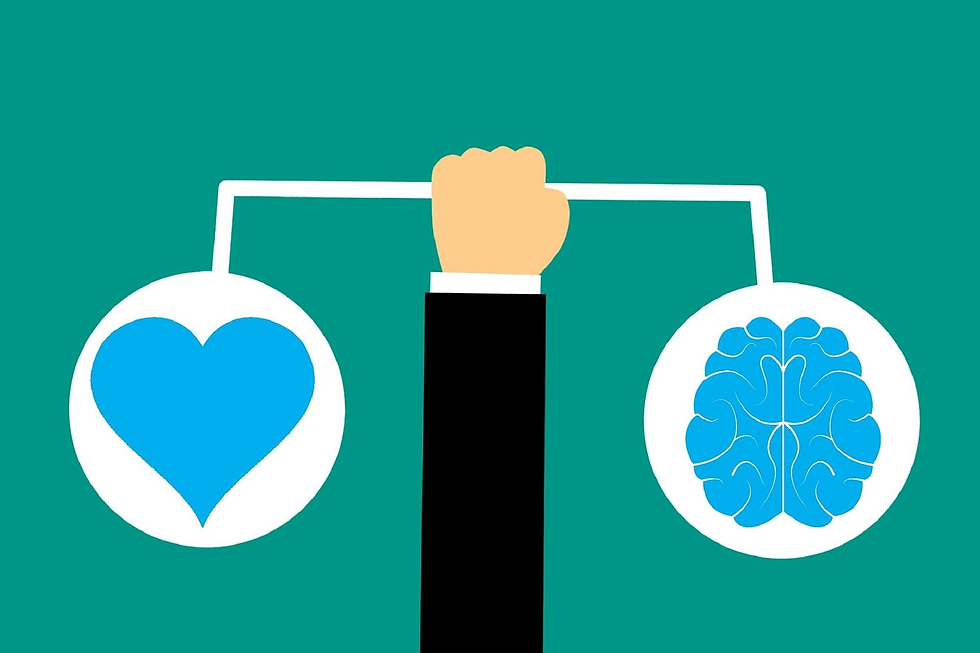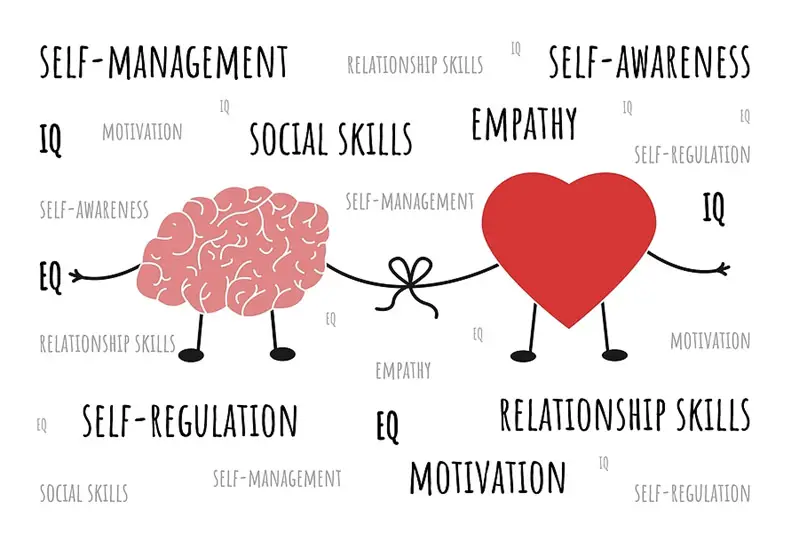“We are dangerous when we are not conscious of our responsibility for how we behave, think and feel.”
Emotional Intelligence is basically mastering the art of controlling your emotions in typical situations. Managing emotions is especially important in pressure-centric conditions. For instance, when a person is dealing with feedbacks, meeting tight deadlines, changes in relationships or navigating any sort of change in life in general, going through breakdowns or working with any failure or setbacks.
It is a learned ability to identify, experience, understand, and express human emotions in healthy and productive ways. It is known in educational settings as social/emotional learning. Whatever term you prefer, the concept is the same: to help individuals learn to use their emotions in a positive and a constructive way. Emotional intelligence skills form the base of competencies that all soft skills are built upon.

Source:- https://www.entrepreneur.com/en-au/leadership/why-emotional-intelligence-can-make-or-break-your/334872
As Albert Einstein rightly said that “We cannot solve our problems with the same thinking we used when we created them.” EI works on the principle of altering the approach and changing your attitude towards your problems. It’s a complex concept inextricably linked with other social, communication and soft skills.
Understanding and managing your emotions and the emotions of others helps us to be more successful in both our personal and professional lives. It’s a scientific fact that emotions precede thought. When emotions run high, they change the way our brain functions, diminishing our cognitive abilities and interpersonal skills. To quote Maya Angelou ‘People will forget what you said, forget what you did, but they will never forget how you made them feel.’
The term was coined in 1990 in a research paper by two psychology professors, John D. Mayer of UNH and Peter Salovey of Yale. Daniel Goleman, an American psychologist helped to popularize emotional intelligence. Goleman helped, to introduce five components of emotional intelligence that allow individuals to recognize, connect with, and learn from their own as well as other people’s mental states. These include self-awareness, self-regulation, motivation (defined as “a passion for work that goes beyond money and status”), empathy for others and social skills, such as proficiency in managing relationships and building networks.
EI revolves around perceiving emotions, facilitating thought using emotions, comprehending emotions, and managing emotions. There are many models and theories of EI developed till date. Four branch model of EI, Bar-on model of emotional-social intelligence, Goleman’s model of EI, to name a few.
There are many ways that you can help a client to improve soft skills and, in turn, enhance Emotional Intelligence and overall career development. Here are some examples where EI is applicable:
Self-management: This soft skill takes personal accountability, maturity, and responsibility into consideration. Help yourself recognize and manage impulses, moods, and behaviours according to the situation.
Decision making: It is advisable to not make rushed decisions. When someone experiences anger or other strong emotions, advise him to examine the situation before choosing how to react to it.
Leadership: To an employer, knowing the company’s mission and vision is important, but modelling it for others is equally as important. Examples include effective leadership styles and associated behaviours.
Teamwork: Before judging any opinion or person learn to respect different views and in case of distinguished thought processes learn to be diplomatic.
Conflict resolution: Ensure that you act rationally and calmly in difficult situations. Remind yourself to analyse the scenario accurately and react accordingly.
As we know, it is not the smartest people who are the most successful or the most fulfilled in life. You probably know people who are academically brilliant and yet are socially inept and unsuccessful at work or in their personal relationships. Intellectual ability or your intelligence quotient (IQ) is not enough on its own to achieve success in life. Yes, your IQ can help you get into college, but it is your EQ that will help you manage the stress and emotions when facing your final exams. IQ and EQ exist in tandem and are most effective when they build off one another.

Source:- https://www.mtdtraining.com/blog/emotional-intelligence-leadership.htm
The correlation of emotional intelligence with your health is described as follows-
Your physical health- If you're unable to manage your emotions, you are probably not managing your stress either. This can lead to serious health problems. Uncontrolled stress raises blood pressure, suppresses the immune system, increases the risk of heart attacks and strokes, contributes to infertility, and speeds up the aging process. The first step to improving emotional intelligence is to learn how to manage stress.
Your mental health- Uncontrolled emotions and stress can also impact your mental health, making you vulnerable to anxiety and depression. If you are unable to understand, get comfortable with, or manage your emotions, you'll also struggle to form strong relationships. This in turn can leave you feeling lonely and isolated and further exacerbate any mental health problems.
The key skills for building your EQ and improving your ability to manage emotions and connect with others are:
1. Self-management
2. Self-awareness
3. Social awareness
4. Relationship management
Navigating the pandemic's psychological, physical, and economic effects is complicated and evokes a range of different and often conflicting emotions. This indicates that emotional intelligence is needed more than ever before.
EI is the ability to notice, identify, understand, and manage our own feelings and the emotions of others. It incorporates self-control, social skills, relationships, communication and influencing or motivating other people — all great skills for personal and professional success.
EI is a learnable skill, so you can develop it and build on your baseline. You must have some understanding of EI, learn some tools to help you and practice them.
1. Recognize your feelings. Observe your emotions as you experience them and identify them for what they are, anger, hurt, jealousy, happiness. Although these experiences are personal and subjective, naming them enables you to see them as things separate from you, not integral or attached to you. Recognize what they mean to you and how they affect you, your mood, and your behaviour. When you recognize what it is you are facing, this detachment helps you to control your feelings and manage them better instead of them controlling you.
2. Assess yourself. Do half a SWOT analysis on yourself. Make a list of your strengths and weaknesses. Be realistic — not too harsh or too imaginative. Identifying your strengths and weaknesses gives you a reminder to put your skills and qualities to good use; identify ways in which you need development and improvement.
3. Listen with tolerance, compassion, and empathy. Instead of expressing your own emotional needs through your own feelings and their enactment, imagine how other people might feel and identify their emotions. This can help you to empathize with them and give an appropriate response to them and their needs.
4. Practice social awareness. Notice your environment and context, socially and organizationally. Leaders consistently interact with others, so social awareness is essential to recognizing their moods, states, and feelings — from the expression on their face to their body language to what they say and what they do.
Organizationally, be aware of strategies, decisions priorities, politics and trends and communicate them.
EI encourages compassion globally and helps to develop our connections with one another. Our Emotional Intelligence skills are believed to be huge contributors to our overall success in life, due to their influence on our ability to self-manage and motivate.
It is the sensible intersection of your heart and head. Learn to control your emotions else your emotions will control you.
Article by:- Urishita Gambhir




Comments